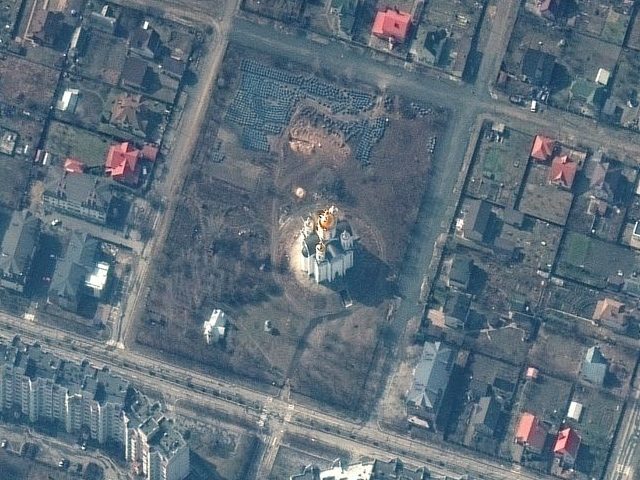There is mounting evidence that Russia is committing war crimes, as President Joe Biden has alleged, but not that it is engaging in genocide, as Ukrainian President Volodymyr Zelensky has claimed.
There are two basic types of war crimes: the crime of engaging in unjustified aggressive war; and crimes committed in a war, regardless of whether the war itself is legal or illegal.
There is little doubt that Russia’s attack against Ukraine constitutes the crime of engaging in an aggressive war, under any reasonable definition of that term. The problem is that the International Criminal Court (ICC) may not have jurisdiction to prosecute that crime against non-state parties such as Russia, without the approval of the United Nations Security Council, in which Russia has a veto.
The ICC does have jurisdiction to prosecute war crimes committed by non-state parties against civilians during a war. But proving such crimes is a daunting task, even in the face of solid media evidence that civilians are being killed in large numbers.
In order to convict, the prosecution must prove either that civilians were intentionally targeted — or if their deaths were merely “collateral” to military targets, that they were “disproportionate” to the military value of these “legitimate” targets. If Russian leaders were ever brought to trial – an unlikely event – they would claim that the civilian deaths were merely collateral and proportionate to military targets.
The evidence in the media—especially of recent close-range shootings of civilians reportedly with hands tied behind their backs — would seem to disprove any such Russian defenses, but securing admissible evidence of the intentions of military and civilian leaders is not always easy in the fog of war.
If the leaders are prosecuted, it would not be enough to prove that individual soldiers committed war crimes. There must be evidence of complicity by the civilian or military leaders who stand charged. I am fairly confident, however, that prosecutors could prove that Russian leaders targeted civilians and/or that they knew that the large number of civilian deaths were not proportionate to the military value of the targets.
What prosecutors would not be able to prove is the crime of genocide. They couldn’t prove it because it is not occurring.
Genocide requires an intent to exterminate an entire racial, religious, ethnic or other identifiable group. It does not cover the mass, random killing of civilians as part of military action. For example, the bombings of Hiroshima, Nagasaki, Dresden or Tokyo may have been war crimes, but they were not genocide. Nor do the war crimes being committed by Russia in Ukraine meet the definition of the crime of genocide. Putin’s goal was to occupy Ukraine, destroy its leadership, and substitute a Russian-friendly regime. That may have changed with recent setbacks. But the goal has never been to exterminate all Ukrainians, all Catholics or all members of any other specific group. What is being done is bad enough and should not be exaggerated. Nor should false accusations of genocide be permitted to dilute the memory of real genocides, such as those committed against Jews, Armenians, or Tutsis in the last century.
There is an understandable temptation, especially in the face of unspeakable barbarism such as that taking place in Ukraine, to weaponize and misuse words and history in the service of calling out the barbarians. But this temptation must be resisted.
Genocide is different both in kind and degree from other serious war crimes, as Raphael Lemkin, the Polish lawyer who coined the term in 1944, recognized. It is limited to a program of wiping out – exterminating – an entire people, generally based on genetic characteristics, such as race or ethnicity. It can also apply to religion, tribal affiliation, sexual orientation and the like. But it is not applicable to the random killing of civilians as part of an unlawful war effort. That is a separate war crime that should be investigated and prosecuted.
So, let the international community focus on the actual and unspeakable war crimes being committed by Russian soldiers, with the likely knowledge and complicity of Russian leaders. And let us hope that the world will never again experience the kind of genocide that led Raphael Lemkin to coin that historically-specific term.
Follow Alan Dershowitz on
Twitter: @AlanDersh
Facebook: @AlanMDershowitz
New podcast: The Dershow, on Spotify, YouTube and iTunes
Dersh.Substack.com

COMMENTS
Please let us know if you're having issues with commenting.